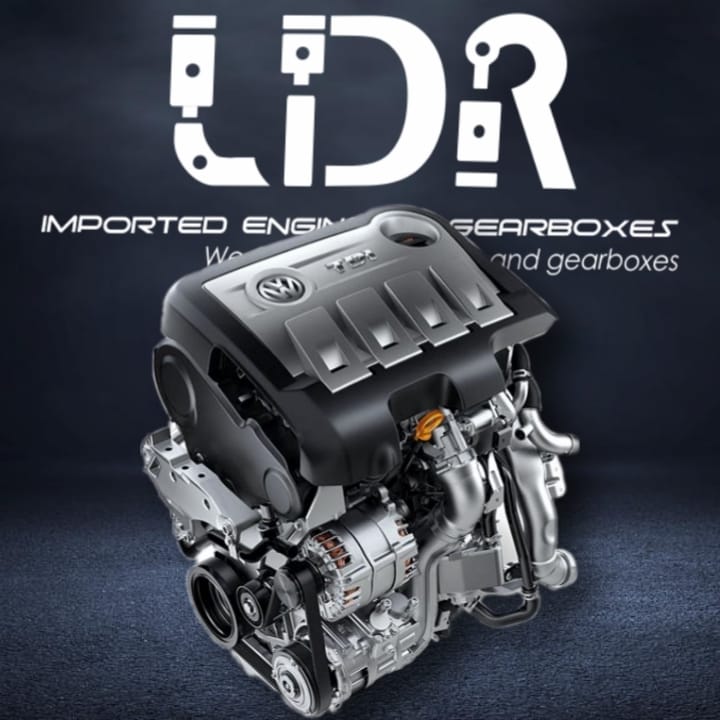Tips for Keeping a High-Performance Engine in Your Polo 4
Keeping a high-performance engine in your Polo 4 calls for a systematic approach to make certain longevity and performance. As we explore these necessary upkeep ideas, take into consideration how each one adds to the overall wellness of your engine.
Normal Oil Changes
Exactly how commonly should you focus on oil adjustments for ideal engine efficiency? Normal oil changes are crucial for maintaining the health and wellness and performance of your Polo 4's engine. Typically, it is suggested to alter the oil every 5,000 to 7,500 miles, although this may vary based on driving habits and the kind of oil utilized. Synthetic oils, for example, can expand the interval as a result of their superior homes.
Regular oil adjustments assist remove pollutants and sludge that build up with time, guaranteeing that your engine runs efficiently. Clean oil lubricates the internal components, reducing friction and wear, which straight contributes to the durability and efficiency of the engine. Neglecting this crucial maintenance can cause boosted engine temperatures and eventually cause costly repairs.
Additionally, monitoring the oil level and quality regularly can give insights into your engine's condition. If the oil shows up abrasive and dark or if the level is regularly low, it may indicate underlying concerns that require dealing with. Prioritizing routine oil adjustments is a simple yet important action in ensuring that your Polo 4 delivers optimum performance, effectiveness, and integrity throughout its life-span.
Air Filter Maintenance
The air filter in your Polo 4 plays a crucial duty in maintaining engine performance, as it ensures that just clean air gets in the engine for optimal burning. A tidy air filter enables boosted air flow, which can enhance engine efficiency and power result. Disregarding air filter maintenance can bring about decreased performance, raised fuel intake, and possible engine damage.
To maintain the air filter, it is important to check it on a regular basis, preferably every 10,000 to 15,000 miles or as recommended in your owner's manual. When inspecting the air filter, try to find signs of dirt buildup, damages, or extreme wear. It needs to be changed to make certain correct air movement. if the filter shows up clogged up or filthy.
When changing the air filter, constantly make use of a top quality OEM or suitable filter to keep the engine's efficiency standards. Additionally, think about cleaning the air filter if it is reusable, following the manufacturer's guidelines for cleansing and reinstallation.
Gas System Treatment
A clean and reliable gas system guarantees ideal gas combustion, improving engine power and fuel efficiency. Begin by on a regular basis examining and replacing the gas filter, as a clogged up filter can restrict fuel flow, leading to engine efficiency concerns (Polo 4).
Furthermore, consider utilizing high-grade gas which contains detergents developed to keep your fuel injectors clean. Gradually, deposits can gather in the gas system, reference bring about poor engine efficiency and enhanced exhausts. To battle this, incorporate a fuel system cleaner regularly to eliminate these down payments and preserve injector effectiveness.
Additionally, inspect gas lines for any type of signs of leaks or put on, as harmed lines can cause sustain loss and safety and security hazards. Finally, make sure that the gas storage tank is maintained least a quarter full to prevent debris from clogging the fuel filter and to maintain the gas pump's cooling ability. By sticking to these methods, you can guarantee that your fuel system continues to be in peak condition, contributing to the overall efficiency of your Polo 4.
Air Conditioning System Checks
Making certain the air conditioning system in your Polo 4 operates efficiently is essential for avoiding engine overheating and preserving ideal performance (Polo 4). Regular checks special info of the air conditioning system elements, including the radiator, hose pipes, and coolant degrees, are important to avoid costly repair services and ensure durability
Next off, examine the condition of the pipes for any kind of signs of wear, such as lumps or splits, which may lead to leaks. Replacing harmed tubes promptly can protect against engine damage.
Furthermore, inspect the radiator for any particles or clogs that can impede air flow. A tidy radiator advertises effective air conditioning. Pay attention to the thermostat as well; ensure it opens up and shuts correctly to manage the engine temperature successfully.

Conclusion
Finally, preserving a high-performance engine in the Polo 4 demands adherence to an organized maintenance regimen. Normal oil adjustments with high-grade artificial oil, diligent air filter evaluations, prompt imp source fuel filter replacements, and constant checks of the air conditioning system are vital techniques. These steps jointly add to ideal engine efficiency and longevity, guaranteeing that the vehicle operates successfully and dependably in time. Emphasizing these upkeep tasks will eventually improve the driving experience and safeguard the engine's stability.
The air filter in your Polo 4 plays an important function in keeping engine performance, as it ensures that just tidy air goes into the engine for ideal burning. Ignoring air filter upkeep can lead to lowered efficiency, raised fuel consumption, and possible engine damage.
